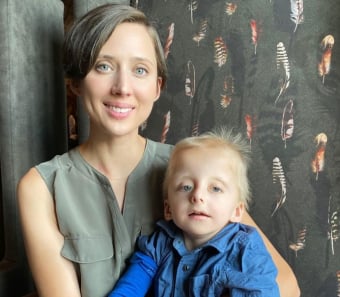NSD1 Deletion/Duplication (MLPA) is a molecular test used to detect copy number variants in the gene associated with Sotos syndrome. Sequencing of the NSD1 gene and MLPA deletion/duplication analysis can be ordered concurrently, sequentially or separately.
2 weeks
81405
$500
Sotos syndrome is an autosomal dominant overgrowth condition due to mutations in the NSD1 gene, which has been localized to 5q35. Individuals present with a typical facial appearance, including a long narrow face and prominent narrow jaw, down-slanting palpebral fissures, frontal bossing, malar flushing and a sparsity of hair in the frontotemporal region. Developmental delay is also a common feature.
Molecular testing is useful to confirm the diagnosis and to identify the disease causing mutations within a family to allow for carrier testing and prenatal diagnosis.
multiplex ligation-dependent probe amplification (MLPA)
Approximately 80-90% of patients with Sotos syndrome will have an identifiable abnormality in NSD1.
The preferred sample type is 3-5 ml of peripheral blood collected in an EDTA (purple top) tube. Extracted DNA and saliva are also accepted for this test. Saliva samples must be submitted in an approved saliva kit. Contact the lab to receive a saliva kit or to have one sent to your patient.
The specimen should be kept at room temperature and delivered via overnight shipping. If shipment is delayed by one or two days, the specimen should be refrigerated and shipped at room temperature. Do not freeze the specimen. Samples collected on Friday can be safely designated for Monday delivery.
Prenatal diagnosis is available if the familial mutations are known. Additional fees for cell culture and maternal cell contamination may apply. Maternal cell contamination studies are required for all prenatal molecular tests. Contact the laboratory prior to sending a prenatal specimen.
Call our laboratory at 1-800-473-9411 or contact one of our Laboratory Genetic Counselors for assistance.
Robin Fletcher, MS, CGC
Falecia Thomas, MS, CGC
Alex Finley, MS, CGC
